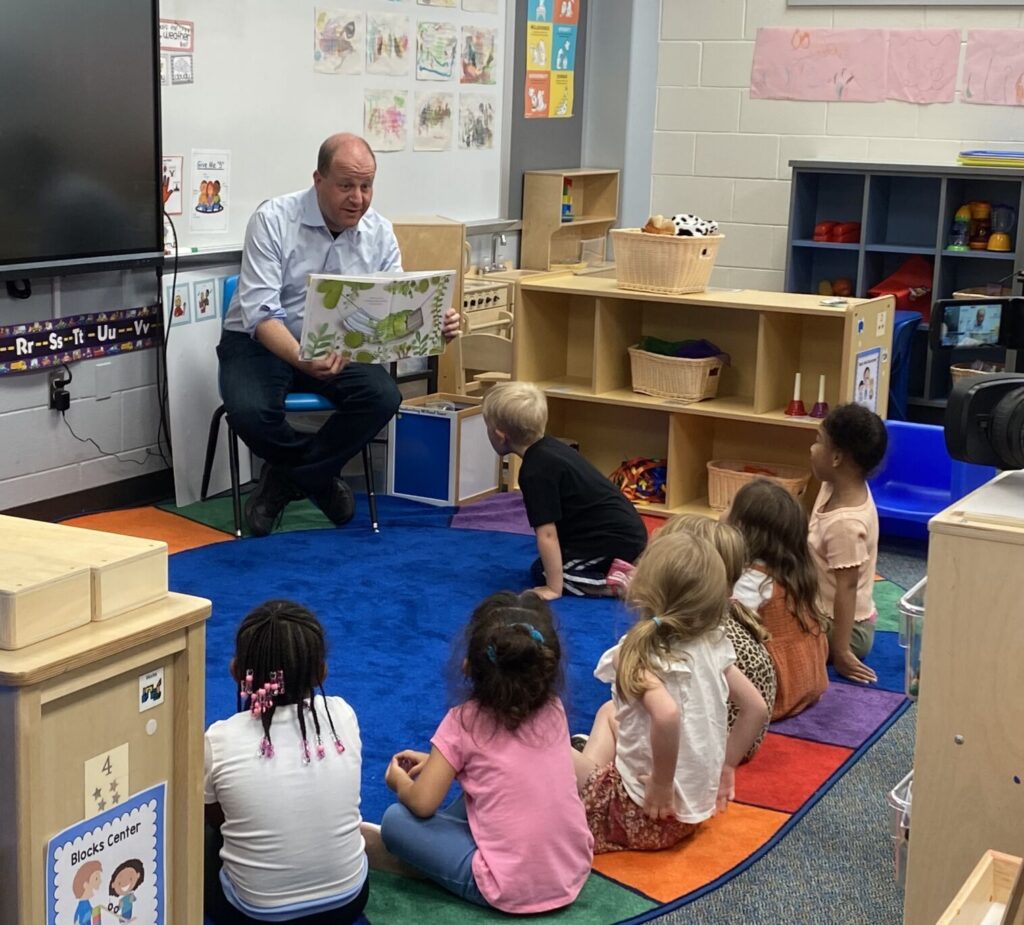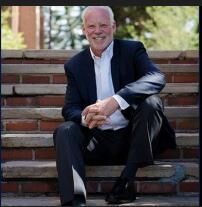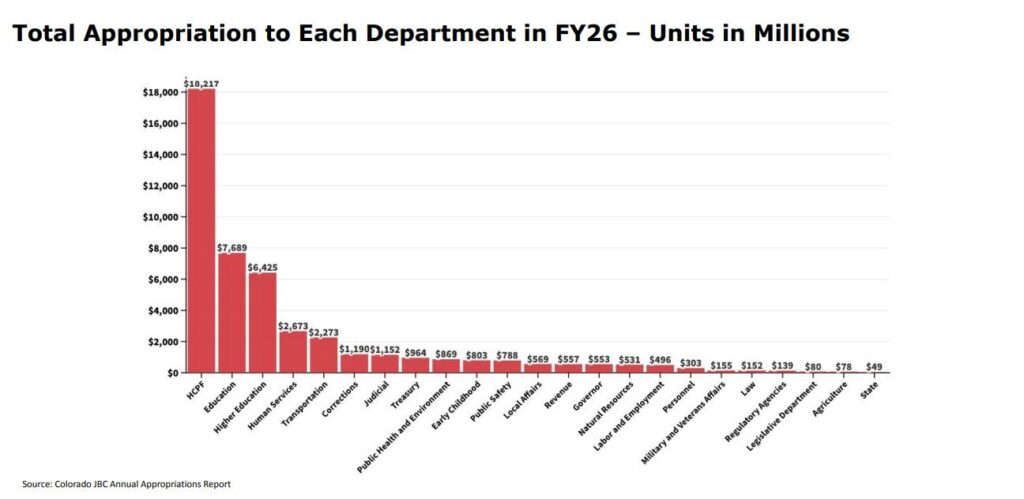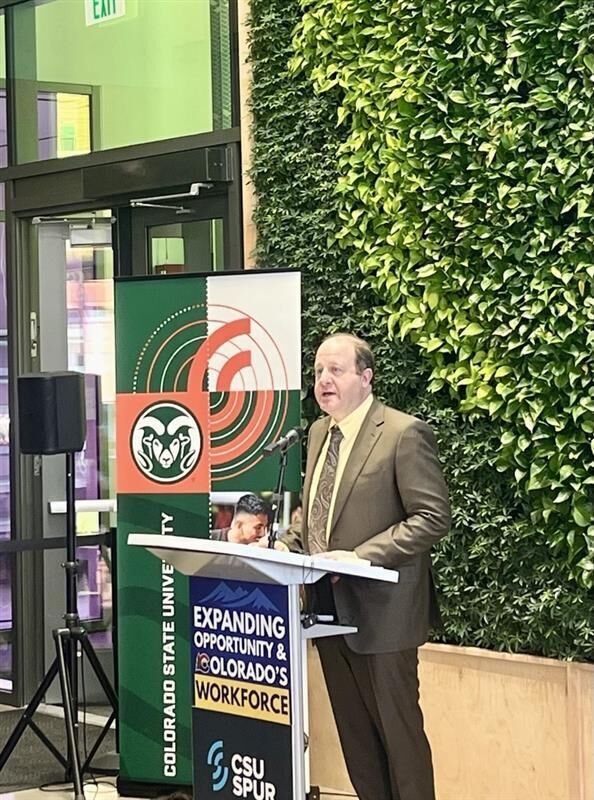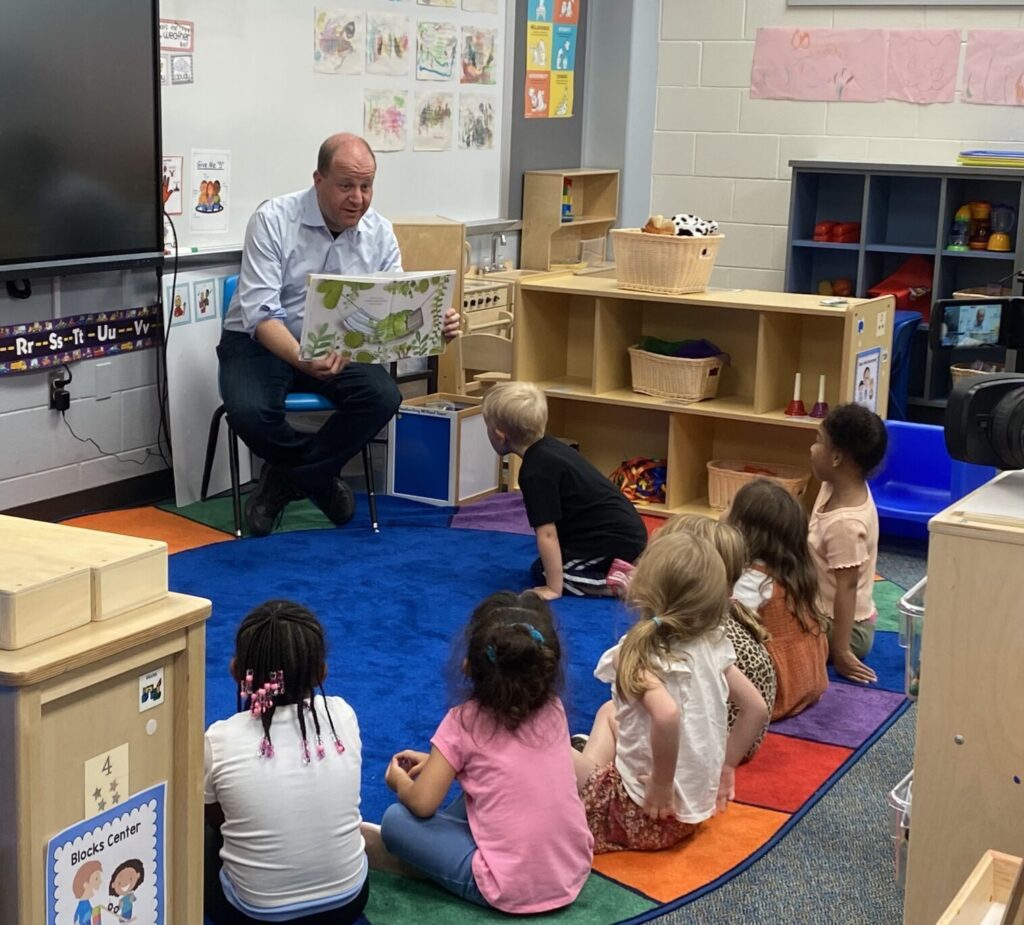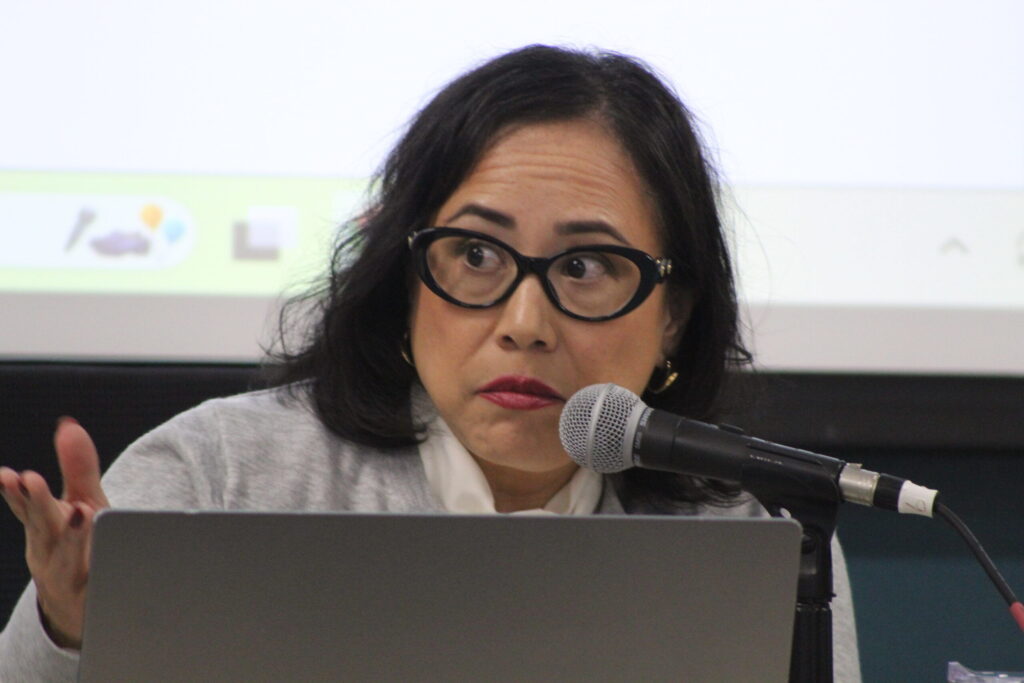District 20 board denies considering LGBTQ+ segregation, transgender bathroom policy at Thursday meeting
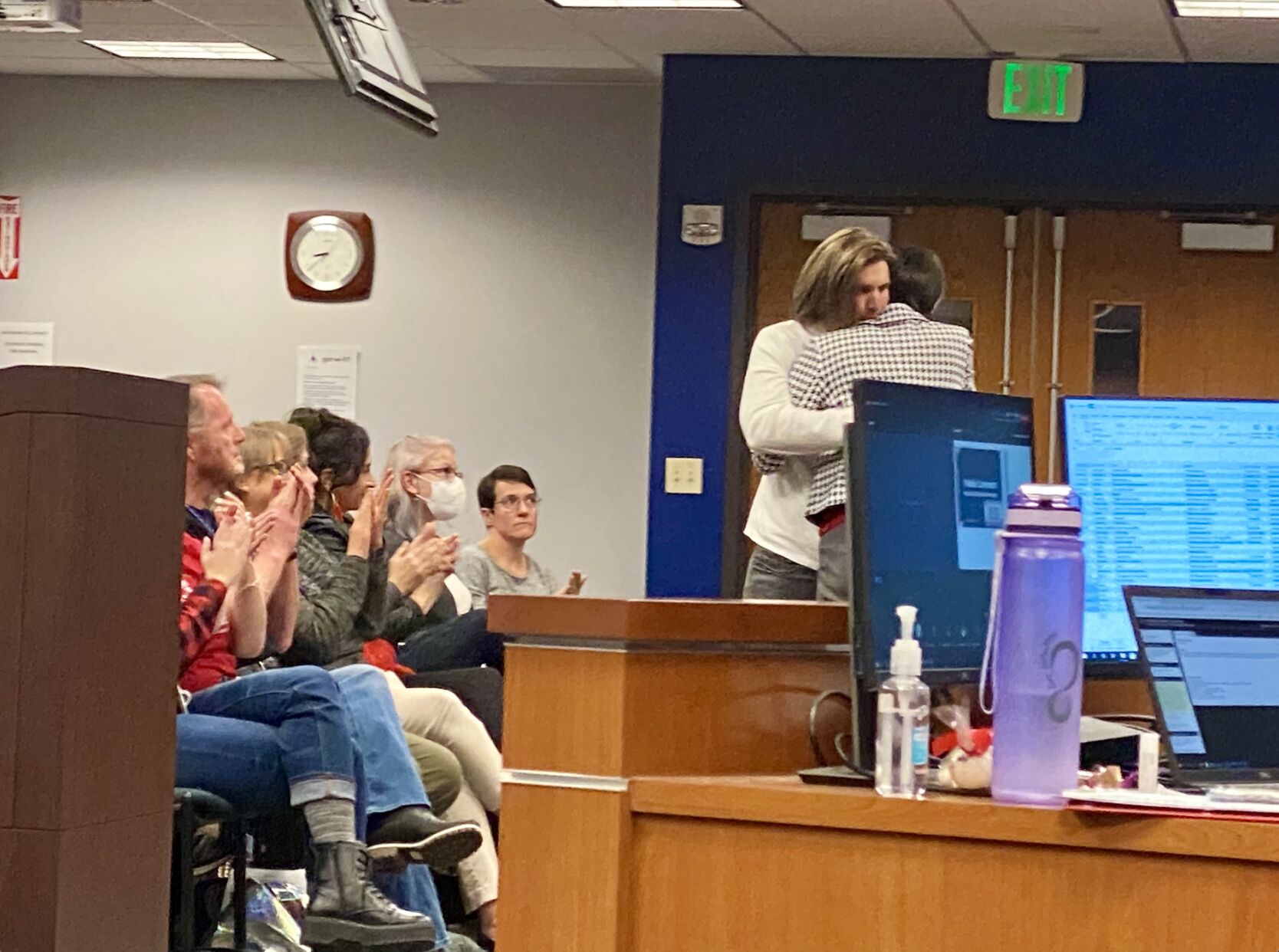
Colorado Springs residents clashed over LGBTQ+ issues at Thursday’s Academy School District 20 board meeting as crowds overflowed into the hallway outside the conference room.
An email that came to light earlier this week via an open-records request showed a community member proposed to administrators that the district set up a separate campus for LGBTQ+ students and suggested transgender students could be sexually assaulted if they use a restroom that aligns with their gender identity.
The board also adopted a resolution that will keep a challenged book in a middle school library by requiring parental approval before it is checked out.
Sixty-three community members signed up to address the board during public comment, coming alternately to the defense of the board for its service and criticizing it for its alleged failure to advocate for the LGBTQ+ community.
“I think I can safely say that the board has never discussed and would never discuss and, in fact, we condemn any thought of separating students of schools based on anything except parental choice,” board President Thomas LaValley said. “In addition, there is no board policy on bathrooms. There has never been such a policy, nor has there been any discussion relating to any sort of a board policy regarding bathrooms.”
Colorado State Board of Education member Rankin to resign Jan. 10
A request filed through the Colorado Open Records Act and obtained by a community member detailed a Nov. 14 email exchange between district spokesperson Allison Cortez and Jim Smith, assistant superintendent of planning and engagement. In the exchange, Cortez summarized a meeting with two community members who expressed concerns over the district’s strategic plan, “specifically its focus on belonging, the status of Gay, Straight Alliance (GSA) Clubs – and the promotion of these clubs.”
Smith and Cortez met with Advocates for D20 chairperson Brian Moody and member Don Spano on Sept. 15. Advocates for D20 is a community organization that is unaffiliated with the district, according to Cortez. The group has twice petitioned the district in the past three months, first “for the reclassification of GSA clubs” and second “for the removal/change of the district strategic plan.”
Year one of the strategic plan, which Cortez and Smith explained was to be implemented over a five- to 10-year period, focuses on belonging for all students.
Celebrated Widefield student musicians to perform annual Winterfest concert series
“I really, really hope that there are no claims tonight that segregating LGBTQ students and staff was just a innocent proposal, because we all know that it wasn’t,” community member Rob Rogers said during public comment Thursday. “And the fact that it’s even being discussed at all, is precisely the problem.”
During the September meeting, Moody said he takes issue with a “culture of belonging,” according to the email exchange, because it can be used to promote individual agendas. By making sure one group feels like it belongs, schools might inadvertently disenfranchise other groups, he said.
“[Moody’s] daughter is at Pine Creek and her teacher asked for her preferred pronoun. He does not think that is a question an educator should be asking,” an email from Cortez to Smith summarizing the Sept. 15 meeting reads. “But the principal there used ‘belonging’ in the strategic plan as a way to defend the pronoun question.”
Spano suggested the district establish a separate campus for LGBTQ+ and transgender students that can cater to “that type of belonging” since there is contention surrounding the term “belonging.”
Cortez and Smith said belonging is about respecting each individual and learning to respect one another, according to the email. The district will train staff on how to implement the plan consistently.
Advocates for D20 later met with Superintendent Thomas Gregory to clarify how the district handles student requests to use a bathroom that aligns with their gender identity and how it responds when a student wishes to use a different name or pronoun.
In a Nov. 14 email exchange shared through the CORA request, Moody recapped his interpretation of district policy on bathroom use as follows:
“1. Parent involvement will be requested of the student when a gender identity change is being expressed.
2. A request to use the staff bathroom is made of the student.
3. A written record is made of the student’s new identity and which bathroom will be used.
4. No bathroom or locker room usage will be allowed different than a birth gender unless a statement of written record exists for the student in question choosing to use a bathroom or locker room different than their birth gender.
5. The student will receive some guidance about the potential ramifications of transitioning and using opposite gender bathrooms, even the risk of exposure to opposite sex adult coaches/staff, lawsuits and sexual assault.”
Gregory clarified that the district does not have a policy on such matters. He has had discussions with principals but has not followed up in writing, he said.
During Thursday’s meeting, Moody clarified his statements, saying accusations of hate speech from Advocates for D20 are unfounded.
“My concern is the manufactured controversy that I see happening,” Moody said. “There’s another narrative that’s unfolding in recent days, that Advocates for D20 Kids is supporting segregation of LGBT students into a separate school. This is completely false. This is a terrible idea, and it has nothing to do with the beliefs of our group.”
After an hour of discussion, the board later moved to keep “Steal This Country: A Handbook for Resistance, Persistence, and Fixing Almost Everything” by Alexandra Styron on shelves in the Chinook Trail Middle School library. The board was initially split 3-2 in favor of removing the book from shelves before board member Aaron Salt suggested they explore alternative means of limiting students’ exposure without removing it altogether.
Styron’s book discusses civil disobedience and teenage activism, according to its description, and delves into issues including climate change, racial justice and LGBTQ+ rights. LaValley said it amounted to “little more than propaganda” and contains inaccuracies, such as the 2016 election being compromised by Russia or human-induced climate change ruining the planet.
The book has never been checked out of the library in its three years on school shelves, according to the board. Board Vice President Will Temby suggested school libraries should review which books have not been checked out over extended periods of time and determine their relevance to their respective student populations, but removing this one book due to its content is not the answer to the greater problem at hand.
“Our libraries are replete with books that, if you start picking at the scab, you’re going to find full of bias, full of horse shit, whatever,” Temby said. “It’s starting now, but where does it end? Because we’re offended, because it doesn’t meet our ideology, or we think it’s outrageous is our problem … This is a dangerous precedent.”
The board ultimately voted unanimously to keep the book but require parental approval before a student can check it out, an interim solution with the understanding that administration should later adjust its policy regarding low-interest books.





